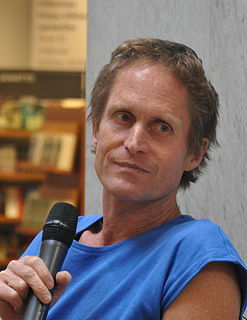A Quote by Kate Zambreno
If one writes the rules then one can contradict oneself. It's all about rhetoric, about official narratives.
Quote Topics
Related Quotes
Must you write complete sentences each time, every time? Perish the thought. If your work consists only of fragments and floating clauses, the Grammar Police aren't going to come and take you away. Even William Strunk, that Mussolini of rhetoric, recognized the delicious pliability of language. "It is an old observation," he writes, "that the best writers sometimes disregard the rules of rhetoric." Yet he goes on to add this thought, which I urge you to consider: "Unless he is certain of doing well, [the writer] will probably do best to follow the rules."
Intelligent, heartfelt stories that tell a whole new set of truths about growing up American. Julie Orringer writes with virtuosity and depth about the fears, cruelties, and humiliations of childhood, but then does that rarest, and more difficult, thing: writes equally beautifully about the moments of victory and transcendence.
Generally, I start by observing the existing and popular narratives in my social spheres and media, and the pressures I face in my own life experiences. As someone who is "newly" trans, I am constantly thinking about what the dominant narratives are around transness, how my work can push against these narratives, and how it already falls into these traps.
I didn't have a perfect model, but I wanted to try to blend my own personal reflections and experiences with this broader canvas to see how a lot of the narratives we have about economy and foreign policy got stuck. Because we have these categories of liberal, conservative, free marketer, open government - all these stereotypes about our politics and the categories we try to put things in are inadequate to this sort of complex, ambiguous, sometimes contradictory experience we have as ordinary people and that I have as an elected official.






































